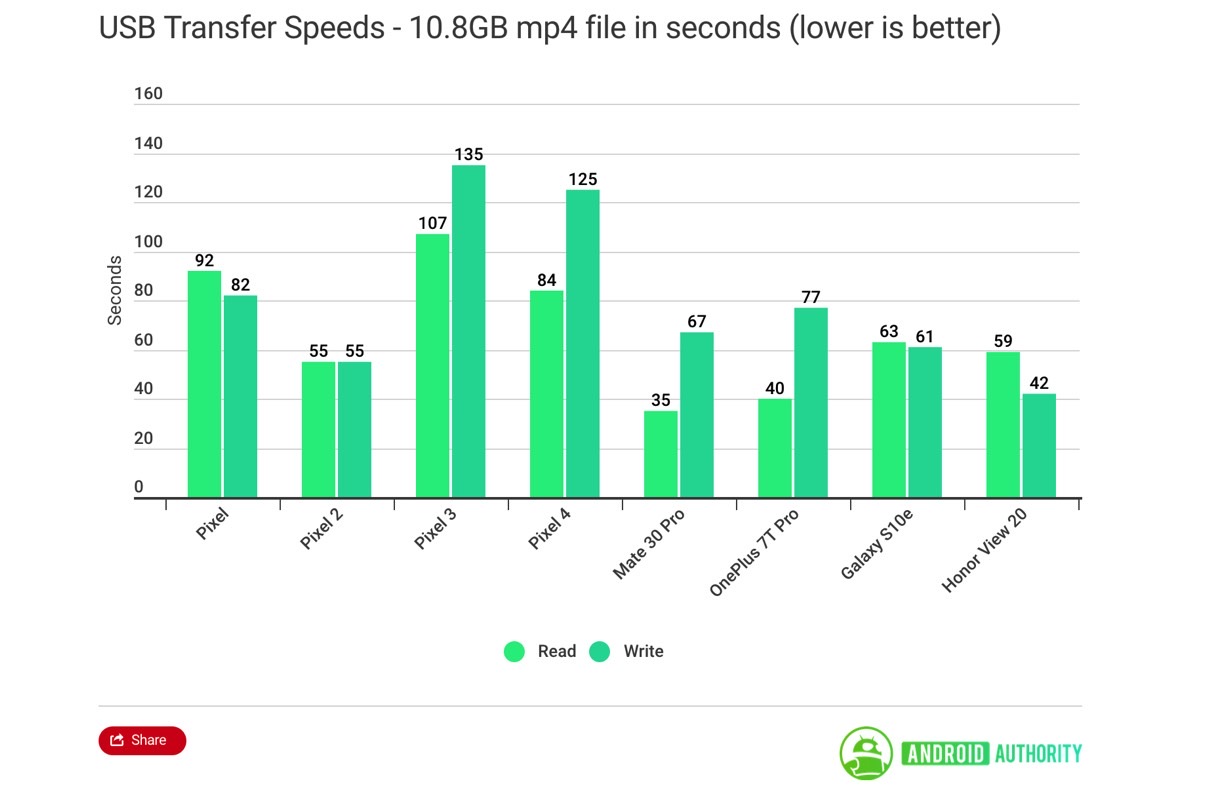- A new Pixel 4 discovery shows a previously unknown issue with Google’s newest flagship, one that Google should fix before the Pixel 5 launches.
- It took this long to be discovered because it’s a feature that not many Android users take advantage of. But the Pixel 4 still fares worse than its competitors, and the problem affects the Pixel 3 series.
- The issue also highlighted another Pixel 4 hardware problem that Google should upgrade for the Pixel 5, and that’s the phone’s storage.
- Visit BGR’s homepage for more stories.
Google has been making phones for ten years, changing course (and branding) a few years ago from affordable Nexus handsets to premium Pixels. These devices are supposed to be Google’s equivalent for the iPhone, Google’s vessel for demoing the best new Android features each year. Sadly, they’re not even close to the iPhone when it comes to that premium experience, no matter how much inspiration they draw from Apple. I talked before Google’s unofficial Pixel tradition, that it has to fix issues after the phone launches, and now we have one more thing that Google apparently needs to fix. This time around, however, it’s something you’ll hardly notice, and even if you do, it’s something that you can definitely live with until a fix is available.
Google’s 3D face unlock system that’s supposed to be more sophisticated than Apple’s thanks to Google’s use of radar shipped with a huge privacy flaw that’s yet to be fixed. Someone can unlock the Pixel 4 when you’re sleeping, although a fix should roll out soon. That’s the kind of serious Pixel feature that Google should definitely fix.
The brand new Pixel 4 flaw concerns data transfer speeds over USB-C connectivity, and it definitely sounds like the kind of problem you shouldn’t worry about. Android Authority discovered in its tests that the Pixel 4 is a lot slower at transferring large data files over a wired connection compared to some of its counterparts. The same problem was observed with Pixel 3, but not with the Pixel 2.

Unlike many of its high-end counterparts, all these three Pixel generation pack UFS 2.1 storage. Many of the others are on UFS 3.0, and the OnePlus 7T Pro rocks even faster UFS 3.1 flash memory. All the phones above also pack USB-C ports, which is a standard connector for Android devices, regardless of whether they’re affordable or expensive.
Given that Pixel 2 is nearly twice as fast as its successors, we may be looking at a software or firmware issue. If that’s the case, then Google might be able to fix it. If it’s a hardware problem from one of the components involved in the wired data transfer processor, then it’s unfixable.
Hopefully, this sort of issue will be ironed out before the Pixel 5 drops. And while we’re at it, it’s already bad enough that the Pixel 4 and Pixel 3 ship with the same type of UFS storage as the Pixel 2. Storage is the kind of component Google shouldn’t compromise on, especially on a phone that has no microSD support. Years ago, when the iPhone 6s launched, we told you how the device featured a component you’ll never hear about in most reports, a storage controller designed by Apple meant to bring MacBook SSD-like transfer speeds to the iPhone.
Some people might say this new Pixel 4 problem is a non-issue for two reasons. First of all, not many users might want to transfer files via a wired connection. But the Pixel 4 doesn’t have expandable memory, and a wired connection should be the fastest way to back up personal data. The second argument might be that waiting an extra minute for a 10GB file to transfer is absolutely not a huge deal. And that’s definitely true.
However, the Pixel phones are supposed to the Android phones. Like I said before, they’re the iPhone equivalents of the Android ecosystem. And that includes pricing. These are expensive phones that should deliver a nearly flawless experience. And they should be at least as good as every other Android flagship when it comes to hardware features.
The iPhones aren’t perfect either, of course, and some models shipped with flaws of their own flaws that Apple had to fix. But that’s the kind of scrutiny these high-end expensive devices get. And it’s likely that when the Pixel 5 drops this fall, people will test the phone’s USB-C and storage speeds right away to see if the transfer issue was fixed. Again, it’s not that you absolutely need fast wired data transfer speeds on the phone, it’s the principle. You’re paying for a premium phone, and the experience should be nearly perfect.







